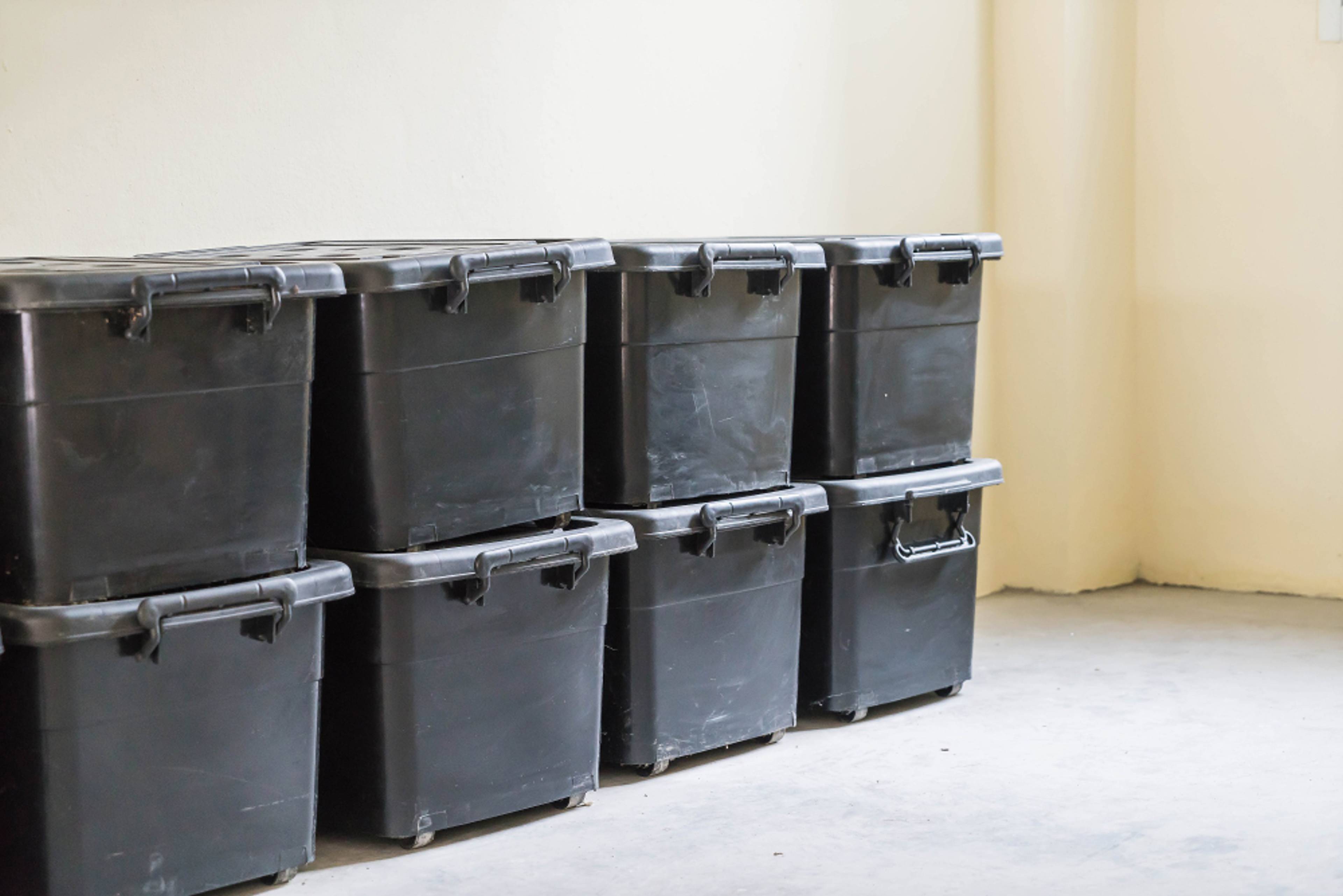Books hold a special place in our hearts. While digital eBooks are more convenient and accessible than physical books, many people still enjoy having a book collection. Knowing the proper way to store books is essential to keeping them in one piece. A storage unit can present unique challenges for storing books due to factors like humidity and temperature.

If your books are taking up too much space, you might consider self-storage as viable storage space. However, delicate items like paintings and books can quickly become damaged if stored incorrectly. Mould growth, page loosening, or dust jackets deteriorating could all lead to irreversible damage to your beloved collection. But with the right approach, you can protect your books from damage.
In this blog, we’ll share expert storage tips, from preparing your books for storage, to how to keep them safe once they are inside. Whether you’re planning on long-term storage or just need extra space temporarily, this guide will help you keep your collection in pristine condition.
Preparing your books for storage
Before you store your books, it’s crucial to prepare them correctly to avoid any damage while they’re tucked away.

Clean your books thoroughly
Start by removing dust and dirt from your books. A soft brush or a clean, dry cloth works well for this. Make sure the books are completely dry before storing them, as even a small amount of moisture can lead to mould growth, which can ruin your books entirely.
This is especially important if you're dealing with antique books or those with sentimental value. Take extra precautions as these could even get damaged in the cleaning process if they are fragile.
Sort and categorise your book collection
Organise your books however you see fit. People generally organise by genre or alphabetically, but you could also organise by size. Creating a catalogue can help you easily locate specific books from your book collection later.
Digitising rare or valuable books is also a good idea, as this provides a backup in case anything happens to the physical copies. Instead of digitising, you could also purchase the books for an e-reader, unless they are unique or rare items.
What should I store them in?
Most storage facilities don't have unique book storage, so you will either have to buy your own or find the next best substitute. The type of storage containers you use can significantly impact the condition of your books.
Avoid cardboard boxes
While a cardboard box might seem like a convenient option, it can easily become damp and attract mould and mildew, ruining the items stored inside. They can also possibly attract pests due to being a nice, cool environment.

Plastic containers with air-tight lids are a better storage solution. They are sturdier than cardboard boxes and provide better protection against humidity and water damage. Plastic bins should be avoided as pests can still get inside.
You could also invest in some individual book storage boxes to individually store books, keeping them separately and well protected.
Use acid-free materials
To further protect your books, especially those with delicate covers or dust jackets, consider using acid-free paper or cloth as a buffer. You can purchase book covers that will cover and protect the book from damage.
Acid-free materials prevent the degradation that can occur over time due to acidic elements in regular paper. Wrapping valuable or antique books in acid-free tissue paper or placing them in book sleeves will help preserve their condition. Paper towels could also suffice.
Bubble wrap is an alternative that you could use, but some storage units can get rather humid, so make sure they are in a climate-secure environment before using it.
Store your books in a climate-secure storage unit
Book storage should be kept between 18-22°C with a humidity between 30-55%. The environment within your storage unit plays a crucial role in preserving your beloved books.
Climate control
A storage facility should come equipped with many climate-controlled self-storage units. Climate-controlled units maintain stable temperature and humidity levels, which are vital for preventing damage like mould growth and page loosening.

Climate-secure
While not as extensive as full climate control, climate-secure units (like HOLD's) offer an added layer of protection against environmental factors. These units are designed to minimise exposure to extreme temperature fluctuations, dampness, and other conditions that can harm sensitive items.
If neither of the above are an option, you can mitigate risks by using moisture absorbers and avoiding storage units prone to temperature fluctuations.
Avoid direct sunlight
Books should never be stored in direct sunlight, as UV rays can fade the cover art and damage the pages. When placing your books in a storage unit, ensure that the containers are kept away from any windows or other sources of direct light.
Keep them off the ground
Storing books off the floor is essential to protect them from potential water damage. Use shelves or pallets to elevate your storage boxes, particularly if the storage facility is prone to dampness or flooding. Elevating your storage also helps with air circulation, reducing the risk of mould growth.
Best practices for book storage
How you arrange your books in the storage unit can greatly affect their longevity.
Store books upright
Whenever possible, store your books upright, just as you would on a bookshelf. This helps maintain their shape and prevents the spines from becoming warped. For larger or heavier books, you may need to lay them flat, but avoid stacking too many on top of one another to prevent damage.

Do not overpack
It might be tempting to cram as many books as possible into one box to save space, but overpacking can damage the spines and covers.
Ensure that your books have enough space to breathe, and avoid tightly packing them together. Leave some room in each container to allow for airflow, which helps prevent mould and mildew.
Keep books you'll use more towards the front
If you know you’ll need to access certain books regularly, place those containers near the front of your unit. This way, you can easily retrieve them without having to dig through all your other boxes. Organising your books based on how often you’ll need them will save you time and effort in the long run.
Check on your books periodically
Visit your storage unit every few months to check on your stored books. Regularly dust them so they stay pristine. Look for any signs of damage, such as moisture, pests, or mould, and address any issues immediately.
Conclusion
Properly storing your books in self-storage is about more than just finding enough space – it’s about preserving your collection for years to come. By following these storage tips, from choosing the right storage containers to finding the right unit, you can ensure that your books remain in great condition, ready to be enjoyed whenever you need them.
HOLD Self-Storage can securely store your books
Looking for the best self-storage units for your home library? Look no further! At HOLD Self Storage, we offer a range of storage solutions tailored to your needs.
Our climate-secure units are the perfect solution for storing delicate items like books. From top-tier security to excellent customer service, we’ve got you covered. Whatever you may be storing, our Kings Cross facility is here to provide you with everything you need.

Contact us today for a free quote and discover why HOLD is the ultimate solution for your storage needs.
Frequently asked questions
Is it better to store books in cardboard or plastic boxes?
Plastic is the better choice when it comes to storage boxes. This is because plastic is less likely to attract mould and moisture due to usually being airtight.
Cardboard boxes can easily become damaged, and can potentially spread mould if they become damp.
Should you store old books in plastic bags?
No, you should not. Plastic bags can easily attract moisture, leading to mould and mildew. They also might emit gases as they degrade, which can also damage your books. Books should always be sealed securely in an air-tight container.
How do you store books so they don't get moldy?
Clean them before storing them, and ensure none of them are damp. Store them in a climate-controlled storage unit for the best conditions. Keep the temperature around 18-22°C with humidity levels around 35-55%
How does storage work at HOLD?
Self-storage works by renting a storage unit or space for a specified period. You can store your belongings in the unit and access them whenever you need to. It's like having your own personal storage space away from home.
How quickly can I have access to my storage unit?
The time needed for move-in depends on the volume of your belongings. Upon online check-in, you'll receive your PIN code and site details from reception in just 5 minutes, allowing immediate access to your unit.


